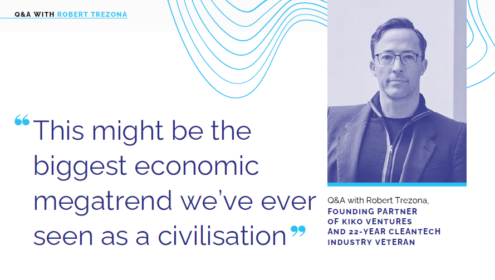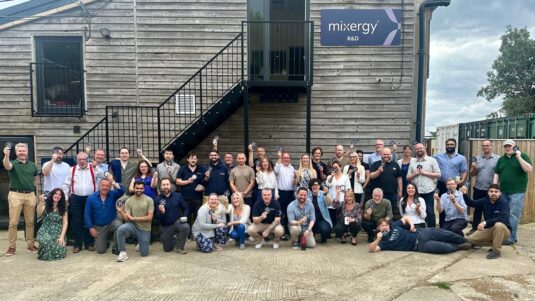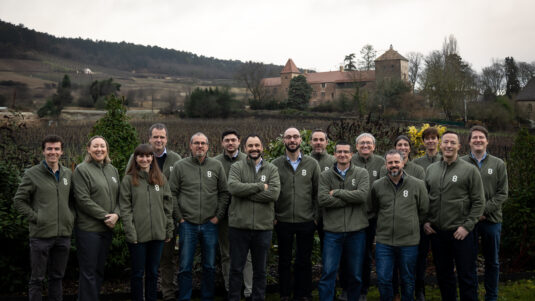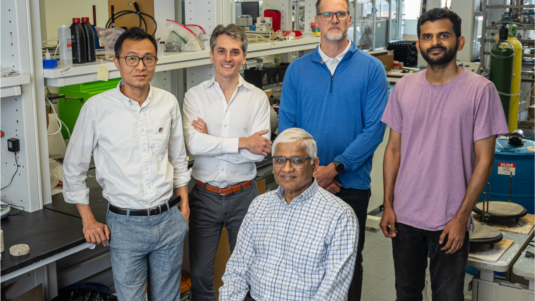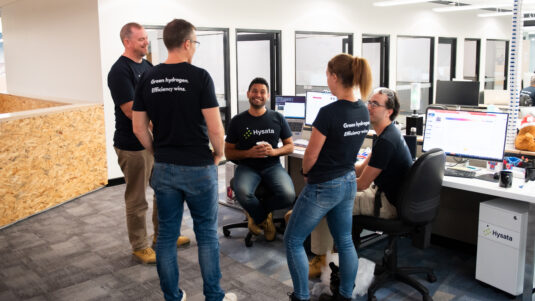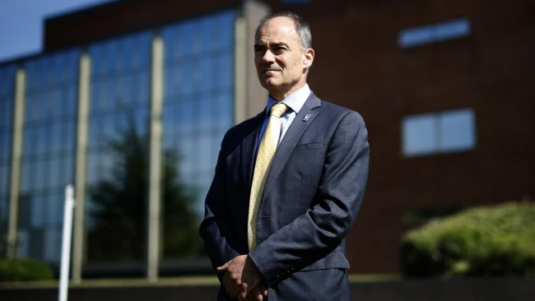Over a career spanning 22 years and counting, there’s little in the world of cleantech that Robert Trezona hasn’t seen or doesn’t have an informed opinion on. We caught up with him to discuss how he recently became a founding partner of Kiko, the $450m evergreen cleantech investment platform backed by IP Group.
We discussed why cleantech has become so popular in the last five years, and the biggest challenges facing the sector as it struggles to make good on its massive potential to change the world for the better. We also explored why UK cleantech policy is amongst the worst in the developed world, and how this affects UK cleantech startups and investments.
Q: How has cleantech – and the perception of cleantech – changed in the last two decades?
A: People used to see it as peripheral, almost like it wasn’t a proper career. It was never seen as something that would be big or mainstream. Then in the late 2000s there was a kind of false dawn when a bunch of west coast VC funds discovered it. You had John Doerr from Kleiner Perkins in a TED talk saying it was going to be bigger than the internet. But then, partially because of the financial crisis, there was a backlash. What really made the difference and took cleantech into the mainstream was the Paris Climate Change Conference where at the 11th hour they inserted this –frankly made up – ambition of 1.5 degrees limit for global warming. The UN then asked the amazing climate scientists at the IPCC to work out what it would take tokeep global warming to 1.5 degrees. Three years later they published their seminal report which said the only way to keep to 1.5 degrees was to get to net zero emissions. And that’s where Net Zero comes from. At this point it’s easy to think the concept has been with us for decades, but it’s really only been five years. It was these and other key inflection points between2015 and 2018 that really made Net Zero a big deal and a strategic priority in the boardroom. And you can see the reaction in cleantech, with global cleantech VC investment hitting an all-time high of $40bn in 2021, where the peak in the late 2000s had been $8 billion in 2008. Last year more solar was deployed than any other energy generation technology for the first time ever, and solar is still accelerating exponentially. And we’re not just talking about startups; it’s big infrastructure projects too. Cleantech has become a mainstream topic in venture capital and the real economy. It’s maybe a little late, but we’re lucky that some of these solutions are now cheaper than the fossil alternatives.
Q: So the timing for Kiko is great. What are the roots of Kiko and what’s the mandate?
A: Kiko is the cleantech platform for the IP Group. I joined IP Group in 2011 with a personal mandate to convince them to have a structure around clean tech. I thought that IP Group’s permanent capital structure was very suitable. It had a history of investing in early-stage companies and tech hardware companies, but there was no structured division or sector for the space. I joined to try and create that and to convince stakeholders, shareholders, board members and so on that you can make money in the space at a time when others were losing money. In a post-Paris, post-Net Zero – and later post-COP 26and post-TCFD world – you could say to IP Group shareholders that this was a trend that wasn’t going away. In fact, this might be the biggest mega trend in terms of changing our economy we’ve ever seen as a civilization. And so rather than continue to edge our way into cleantech, there was a great opportunity to commit to it. Now with Kiko we’ve got a five year commitment that represents a tripling of our previous rate of investment. This is both a recognition of a megatrend and a desire to connect with the entrepreneurs, the founders, and the co-investors and be a consistent climate-focused actor in the cleantech ecosystem.
Q: When Kiko announced itself as the cleantech brand within the IP Group, it must have been like moths to alight bulb in terms of all the startups flocking in your direction. Was that the rection you got?
A: Very much so. It was overwhelming interest, in fact. Not just from entrepreneurs and co-investors, but from policymakers too. That’s partly because we’re very flexible. Although we focus on Seed to Series B, in principle we can look at anything. The permanent capital gives us an unusual level of flexibility. Really the mission is around building transformative businesses, or to push the boundaries of what an investor can do to accelerate solutions to climate change. That resonates a lot with founders and management teams. Within our team we have a lot of experience and a lot of understanding of both the operations and technology of these companies. Our focus is also more on the cleantech hardware rather than software. It’s the hardware that’s really going to move the dial on NetZero. There are others with a similar mandate, such as Breakthrough, or funds like Planet A in Germany. There’s a whole new generation of people looking at deep tech cleantech hardware. These new players mean we have to constantly think about upping our game.
Q: What are the particular sectors of interest for Kiko?
A: Our flexibility watchword means we hate to be pinned down on things. We’ve seen sectors come and go over the last 20 years, sometimes due to the technology and sometimes due to the capriciousness of public policy. So, we want to keep it open. What we can say broadly is that we’ve done to date mirrors what the Energy Transitions Commission – where I’m one of the commissioners – describes as EBIT, which in this case stands for: Energy, Buildings, Industry, and Transport. This tends to be what we’ve done, and that tends to require an understanding of physical sciences, chemistry, material science, physics, chemical engineering, those type of things. We try to only invest in companies where we really understand the technology and the market. In many cases, members of the team have actually worked on that technology or inside companies that worked on the technology. Other VCs often describe us as the energy and transport guys for that reason – as opposed to land useand food, for example. Within that EBIT focus we’re looking at areas like the domestic energy envelope, so solar panels, heat pumps, battery storage and the integration of these. We’re now looking a little bit at the carbon removal economy too. However, we reserve the right to look at many different sectors but then make no investments whatsoever because of the flexibility that we have.
Q: What are the challenges cleantech faces in the next few years?
A: Talent shortages. Although there’s been an almost exponential increase in the additional capital going into cleantech startups, there are very, very few experienced people. There’s a real lack of experienced leadership teams.
Few of our entrepreneurs have had operational business management experience, despite all being deeply talented people. There’s no lack of enthusiasm or talent, but experience matters in terms of strategy, thinking about risk, knowing what markets to prioritise. We end up tending to give a lot of advice in these areas. Besides the lack of experienced management, there’s also the need for technical people. Chemical engineers, electrical engineers, materials scientists; it’s so hard to find those people. And frankly in post-Brexit Britain it’s particularly hard.
There’s a war for talent right now, with much higher salaries available in the US and increasingly in Asia, and in Europe as its ecosystem gets going.
Q: How do you think the UK can become more attractive as a destination post Brexit?
A: Make the visa system really simple. Just have competent policy people working on it. It’s not rocket science to define the areas where you want talent and these people will earn high salaries, contribute income tax etc, as they are in global demand. We have a couple of people working for us on talent visas, but the Home Office makes it painful. It’s unfriendly because all that policy machinery is so focused on factors such as keeping migrants and asylum seekers out. One of the alleged benefits of Brexit is that we can choose who we let in and that’s happened a bit, but only around things like healthcare. There should be a massive focus on talent around climate. In principle we could also do that more rapidly than the EU, where they have to agree across all 27countries. So that is an opportunity, and we could fix it. Though I don’t see anyone working on it, I remain hopeful. And the final piece is supply chains. It’s not just the Brexit thing, but it’s also a Brexit thing. If I want to build something like a pilot plant that’s the first of its kind, you need to import coated steel, pumps, control systems and the like. This now takes twice as long as it used to back in 2018-19, and that’s a massive problem.
Now the Inflation Reduction Act in the US is sucking activity towards the States, and people are far more likely to locate their next factory in Austin, Texas rather than Coventry. The EU has a massive advantage too. With themittelstand (mid-size companies) tradition in Germany and other northern European countries, they have pretty good existing capabilities and a huge number of properly trained engineers. We in Kiko have shareholders to keep happy, hence why we have an office in Berlin and are active in the Nordics. Everyone’s suffering in a post-pandemic, war in Ukraine world, but it’s particularly bad in this country. So it comes down to issues with UK government policy, which can be incredibly frustrating, basically because government ministers and fast-stream civil servants are constantly rotated in and out of departments, so no one builds up any real expertise. And no one really takes energy policy seriously. It’s seen as unglamorous. Plus, our policymakers just don’t understand it. Unlike inmost other European countries, or China – or even the US – we don’t have enough qualified engineers or energy entrepreneurs in or advising government departments. So UK policy is somewhere between neutral to bad, and we have to plan our investments on the expectation that this isn’t going to change. The US is now back in the game and is trying to catch up with China. And – although there are lots of problems with China in terms of overall politics and autocracy –China doesn’t have our climate policy problems. So I’m constantly thinking that certain investments won’t even be worth it, because I’m pretty sure we will be buying the Chinese version that’s ready in five years’ time. You’ve got to be laser focused if you’re fishing in Europe around either tech that works in the European market or if the ambition is global, then it’s going to have to be world class and highly scalable and very IP rich, in which case you can incubate it here and then try and deploy it in Asia and the US.
Q: What are the main factors that you look for when you’re investing in a startup?
A: It often boils down to: is this something that a big corporate will care about? If there’s nobody out there who sees what the startup does as a priority, then you must think carefully about how much to invest or whether to invest.
Take the example of air conditioning systems. They leak greenhouse gases and could be made much more efficient. But the air conditioning companies perceive that their market wants these units as cheap as possible while meeting existing regulatory standards. There’s no appetite to fundamentally change the tech, so that’s nota great space for startups. Whereas if you look at steel, in the last three or four years, the likes of Arcelor Mittal and Tata all suddenly care and are all in for green steel. It’s all possible, largely because many of their customers want to make their products with zero emissions ‘green’ steel. In the end it boils down to: is there real traction where we can pick up the phone and actually speak to someone in a big company who has realised that it is going to need a tech like this? If so, then it might be worth investing in.
